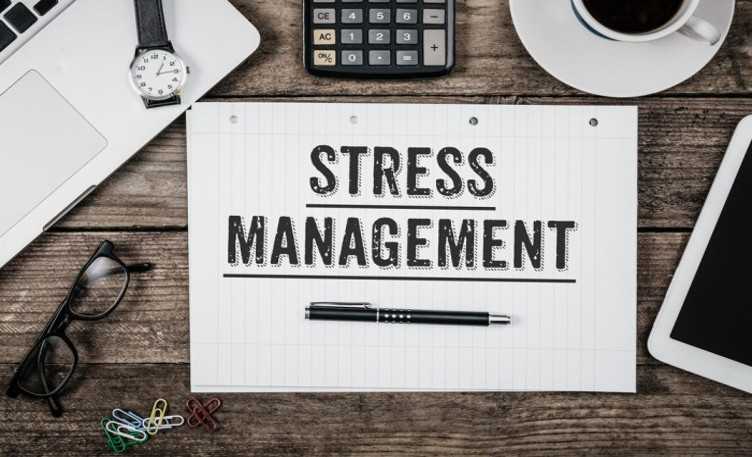Make your own stress management checklist

Most of us experience stress from time to time, and it's a feeling impossible to avoid. Stress is an emotional and physical response to a challenge or demand. Sometimes, a little bit of stress is good for our better functioning, as it activates the flight and fight response in the body to manage demanding situations. The reaction to short-term stress in our body is away to enhance performance. But, if the stress lasts for a considerable period (chronic stress), it may lead to various health ailments. Therefore, stress management becomes crucial for a better quality of life.
According to the national mental health survey 2015-16 in India, approximately 15% of adults need medical attention for one or more mental health conditions, and one in 20 Indian adults have depression. In a recent study on mental health, the Covid-19 pandemic has triggered 25% more anxiety and depression cases than before the pandemic. Social isolation, work from home, financial instability, and unpredictability of disease are the main culprit of the increased prevalence of stress. After the emergence of Covid-19, these mental health issues have started affecting children also. As per a report by UNICEF, approximately 1 in 5 youth are under clinically elevated anxiety symptoms.
Before understanding how stress management and prevention work, we will try to understand the clinical difference between worrying, stress, and anxiety.
What is the difference between worrying, stress, and anxiety?
There is a direct correlation between worry, stress, and anxiety. All these are human feelings in response to a testing situation.
- Worry: Psychologically, it happens when you have repetitive uncontrollable thoughts or concerns about actual or potential problems like I may not be able to find a job, I am not able to keep my family happy, and so on.
- Stress: Our body's response to a potentially threatening or challenging situation is stress. Constant stressors and overwhelming emotions can impact our health and mental well-being.
- Anxiety: It is an emotional response to prolonged worrying and stress. The unnecessary feeling of fear and uneasiness can cause various physical symptoms.
The consequences of stress and anxiety are numerous, including damage to your emotional equilibrium and physical health. You can free yourself from unnecessary stress and anxiety through various stress management techniques.
Your stay-calm checklist: natural tips to manage stress
Stress management includes various tools and therapies to encounter stress and difficult situations. Stress management helps you achieve a work-life balance. Effective stress management can provide resilience to endure pressure and take on challenges with a positive attitude.
The same stress treatment approach doesn't apply to all. Therefore, it is crucial to identify what method works best for your stress management. The following are a few tips to reduce stress and help you to manage it:
- Identify the stressors
It is the first and most crucial step in stress management. Any stimuli, environmental conditions, psychological factors, social burdens, or life events can cause stress. It is easier for a person to identify stressors like job loss, delay in marriage, or divorce, but the problem arises when you have to pinpoint the source of chronic stress. Sometimes you overlook your thoughts, behaviors, and feelings contributing to everyday stress.
Your constant worrying about your work may be due to your procrastination rather than the quantum of work. So to identify the source of your stress, watch your habits and excuses closely.
- Participate in stress-relieving activities
When we feel stressed or depressed, we don't like getting up and being active. Most of us are unaware that performing some physical activities is a huge stress reliever. When we do some physical activities, our brain releases the endorphins hormone (happy hormone), making us feel better and healthier, and improving productivity. There are various techniques for stress reduction. You can include any of the following activities in your daily schedule for effective stress management:
- Listening to your favorite music
- Dancing
- Practicing deep breathing exercises
- Yoga and stretching
- Meditation
- Walking
- Cycling
- Swimming
- Gardening
- Having fun with your pet
- Fun activities with kids
Remember the 4 As
Stress is an automatic response from our brain cells. But most stressful situations happen at a predictable time. It can be a meeting with your boss or your visit to a doctor Ravikant Kumar. Once you identify such predictable circumstances, apply the four As of stress management. Avoid, Alter, Adapt & Accept.
Avoid unnecessary stress
The best way to control stress is to avoid them. A habit of saying no can be a blessing. Focus on knowing your limitations and learn to differentiate between shoulds and musts. Avoid the company of people who stress you out. Learn to take control of stressful situation. If traffic triggers panic in you, take a less crowded route.
Alter the stressful situation
- If avoiding a stressful situation is not possible, try to alter it. Try to be more expressive about your feelings. If something or someone is bothering you, try to avoid it. Try to strike a balance between personal and professional life. And do not forget to have "me time."
Adapt yourself
- If changing the stressor is impossible, then adapt yourself. Develop a positive perspective on dealing with stressful situations. Sometimes looking at the big picture helps.
Accept the circumstances
- There are certain situations impossible to alter. The loss of a near or dear one is one of them. The best way to deal with such stresses is to accept them. Initially, you may feel it is difficult, but it is always better than trying to control the uncontrollable.
- Spend time with those who make you happy. A person who makes you feel happy and safe can ease a lot of stress from you. Good company is a natural stress reliever. Face-to-face interaction with those who matter a lot to you can trigger the release of hormones that counteract stress hormones.
- Do not hesitate to seek professional help.
There is a taboo associated with mental health. People always find it difficult to take advice from a counselor or psychiatrist.
But taking help from professionals does not mean that you are crazy. It means you are intelligent enough to do everything for your wellness.
The Conclusion
Stress is like a spice in food which is beneficial for a person if it is in a moderate amount. Overdose of stress can be harmful to your psychological and physical health. The best way to cater to stress is to be in charge of the situation. The key to quick relief from stress is discovering and experimenting with the unique experiences that work best for you.






